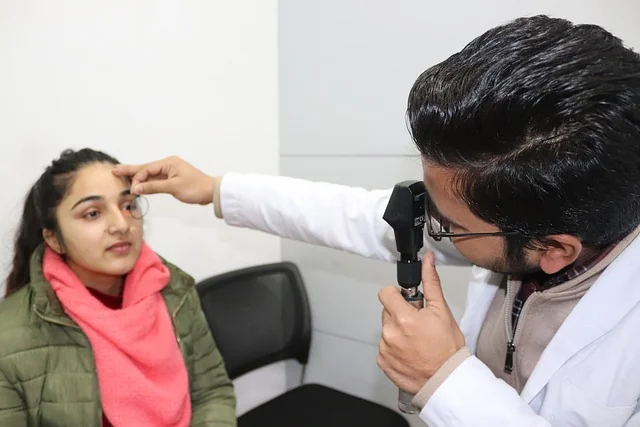
What is Myopia and Learn what is its treatment?
Myopia, or nearsightedness, an eye surgeon with eyeglasses, contact lenses, or refractive surgery, while treatments to slow its progression in children include low-dose atropine eye drops and orthokeratology. He is also eminent for paediatric Cataract surgery for children.
Treatment options for myopia include:
Learn more about what is the better treatment for Myopia
- Eyeglasses.
- Contact lenses.
- Corneal based corrective laser surgery, like that laser-assisted in situ keratomileusis
- (LASIK) or photorefractive keratectomy (PRK)
- Lens-based surgery using a particular intraocular lens implant.
- Topical atropine drops to slow the improvement of childhood nearsightedness.
While myopia (nearsightedness) can be managed and its progression slowed, there's currently no permanent cure for the fundamental structural changes causing it. Corrective lenses and surgery can improve vision, but vision may change over time.
Here's a more detailed explanation:
Myopia Explained: Myopia occurs when the eye grows too long or the cornea curves too much, causing distant objects to appear blurry.
No Permanent Cure: Once myopia develops, there's no way to shrink the eyeball or reverse the structural changes.
Corrective Lenses: Glasses and contact lenses can correct the blurry vision caused by myopia.
Myopia Control Treatments: For children and young adults, treatments like special contact lenses or atropine eye drops can slow down the progression of myopia.
Refractive Surgery: Once myopia has stabilized (usually by the age of 20), refractive surgery like LASIK can reshape the cornea to improve vision and reduce the need for glasses or contacts.
Lifestyle Changes: Limiting screen time, spending time outdoors, and maintaining good lighting can help manage myopia and slow its progression.
Myopia and Age: Myopia basically develops in childhood and continues to progress until around the age of 20. While vision may stabilize as people age, myopia remains a condition that requires ongoing management.
Importance of Early Intervention: Early detection and management of myopia in children and young adults can help slow its progression and reduce the risk of developing high myopia, which can lead to serious eye problems.
Diagnosis and Assessment: A thorough eye exam is needed to accurately diagnose myopia and determine the extent of the refractive error.
Treatment Options: Dr Tanmay Biswas can prescribe eyeglasses, contact lenses, or recommend refractive surgery like LASIK to correct vision.
Myopia Management: Dr Tanmay Biswas specialize in myopia management, offering strategies to slow down the progression of myopia, especially in children and teenagers.
Comprehensive Care: Dr Tanmay Biswas will consider your overall vision needs, lifestyle, and preferences when recommending treatment options.
Monitoring and Follow-up:Regular check-ups are important to monitor the progression of myopia and adjust treatment as needed.
Early Intervention: Early diagnosis and treatment can assist prevent or slow down the progression of myopia and other complications.
Myopia Control For children and young adults, treatments like special contact lenses or atropine eye drops can slow down the progression of myopia.
Vision Therapy: Some eye doctors offer vision therapy, which can help improve eye focusing skills and potentially slow down the progression of myopia.
Atropine Drops: Dr Tanmay Biswas uses low-dose atropine eye drops to slow the progression of myopia in children.
Orthokeratology: Some eye doctors offer orthokeratology, a type of contact lens that reshapes the cornea while you sleep to correct vision during the day.
Book Your Consultation for This Treatment with Dr. Tanmoy Biswas
To schedule a consultation with Dr. Tanmoy Biswas and learn more about how myopia treatment can improve your vision, contact our office today. Whether you are looking for information on LASIK surgery, contact lenses, or other treatment options, we are here to help guide you through the process and find the best solution for your needs.
Frequently Asked Questions
Myopia, or nearsightedness, is a refractive error where distant objects appear blurry, while nearby objects are seen clearly. It occurs when the eyeball is too long or the cornea is too curved, causing light to focus in front of the retina.
Treatment for myopia can involve corrective lenses (glasses or contacts), orthokeratology, laser surgery (like LASIK), or even implanted lenses, depending on the severity of the condition.

